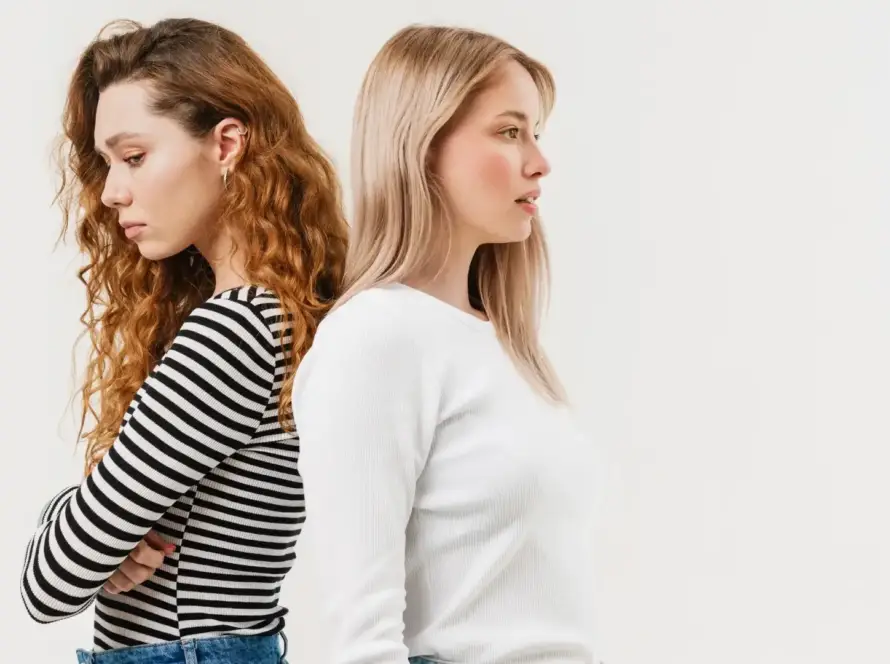
Hook up: Here we are again, tackling another widely used term in the relationship and dating world. Not everyone knows exactly what it means. So they end up using it all the time… and sometimes in the wrong context… where it doesn’t even make any sense.
And let’s start at the beginning:
What does hooking up mean?
“Hooking up” is a broad term that generally refers to engaging in casual sexual activity without the expectation of a committed relationship.
It can involve various forms of physical intimacy, ranging from kissing and touching to sexual intercourse.
The specific meaning of “hooking up” may vary depending on the context and the individuals involved. And it can be subjective and open to interpretation.
It’s important to communicate and establish mutual understanding and consent with your partner(s). This is to ensure that everyone is on the same page regarding the nature and boundaries of the encounter.
So most first time encounters will be called hook ups. Unless people actually go out on a date and decide to be in a relationship.
Difference between a hoop up and a situationship
A hook up and a situationship are two distinct types of relationships. Each with its own characteristics and dynamics.
Here’s a brief overview of the differences between the two:
Hookup:
A hookup typically refers to a casual sexual encounter between two individuals. Without the expectation of a committed relationship.
It is often driven by physical attraction and the desire for a brief, physical connection.
Hook ups are generally more focused on the immediate pleasure and sexual experience, rather than emotional intimacy or long-term commitment.
The individuals involved may not have an ongoing or regular interaction beyond the specific encounter.
Situationship:
A situationship is a term used to describe a relationship that falls between a casual hook up and a committed partnership.
It is a grey area where two individuals share some elements of a romantic relationship. Such as emotional connection and spending time together. But without clear labels, commitment, or the establishment of traditional relationship boundaries.
Situationships can be characterized by uncertainty, ambiguity, and a lack of defined expectations.
They may last for an extended period or have a more temporary nature.
In a situationship, the level of emotional connection and involvement can be more significant compared to a hook up.
However, it often lacks the commitment, exclusivity, and clear definition of a traditional romantic partnership.
Situationships can arise due to various reasons. Such as a desire to keep things casual, fear of commitment, or difficulties in defining the relationship.
It’s important to note that the specific dynamics and terms of both hookups and situationships can vary greatly between individuals and the specific circumstances.
Communication and understanding between the parties involved are crucial to navigating these types of relationships successfully. And also ensuring that everyone’s expectations and boundaries are respected.
How do I approach someone for a hook up?
Approaching someone for a hook up can be a delicate situation that requires tact, respect, and clear communication.
Here are some steps to consider:
- Consent and mutual interest: Ensure that both you and the person you’re approaching are interested in casual, consensual encounters.
Look for signs of mutual attraction or previous indications of interest.
- Create a comfortable environment: Find an appropriate setting where both of you can have a private conversation without distractions.
This could be at a party, social event, or even in a more intimate setting like a coffee shop or park.
- Be confident and respectful: Approach the person with confidence, but also with respect for their boundaries and comfort.
Be polite and considerate in your communication. Try to not get frustrated if they refuse your offer to get hooked up. It’s ok to want different things in life.
- Communicate your intentions: Clearly express your interest in a casual hook up, being honest and straightforward about your expectations.
It’s important to avoid any misleading or ambiguous statements. Try to refrain from using any double-meaning words that might lead that person to understand that you want more than just a hook up.
- Listen and observe: Pay attention to the other person’s response.
If they seem hesitant, uncomfortable, or show disinterest, respect their boundaries and gracefully back off. Consent should always be enthusiastic and freely given.
- Respect their decision: If the person declines your proposition or shows any hesitation, it’s crucial to accept their response gracefully and without pressuring or trying to persuade them otherwise.
Everyone has the right to make their own choices regarding their own bodies.
And you can move on to the next person who you think might be interested in hooking up with you.
Remember, open and honest communication is essential, and it’s crucial to prioritize consent and respect throughout the interaction.
Additionally, be prepared for the possibility of rejection, as not everyone may be interested in the same type of encounters.
I know I got some offers for hooking up during my dating period… and there’s nothing more off-putting than someone who doesn’t understand your boundaries.
Oh yes… sorry… There are some people even more off-putting than that: they’re those people who also get visibly frustrated or even rude to you just because you don’t want to hook up with them.
Signs someone is interested in a casual hook up?
I understand that determining if someone is interested in a casual hook up can be challenging, as people’s preferences and signals can vary.
So here are some general signs that may indicate someone’s interest:
- Flirting and physical touch: If the person is engaging in flirtatious behavior, such as playful teasing, light touching, or prolonged eye contact, it could suggest a potential interest in a casual encounter.
- Open and casual conversation: If the person frequently brings up topics related to dating, relationships, or sexual experiences in a casual and non-committal manner, it might indicate an openness to casual hookups.
- Initiating or accepting invitations to private settings: If the person willingly accepts invitations to more intimate or private settings, such as their or your home, it could suggest a willingness to explore a casual connection.
- Discussing non-committal plans: If the person often suggests activities or plans that are more casual in nature, such as going out for drinks or attending events known for hooking up, it might imply their interest in a casual encounter.
- Expressing a desire for independence: If the person frequently emphasizes their desire for freedom, independence, or a non-committal lifestyle, it may indicate a preference for casual relationships rather than long-term commitments.
- Prioritizing physical attraction: If the person emphasizes physical attraction and sexual chemistry over emotional or intellectual connections, it could suggest a leaning towards casual encounters.
- Clear communication of intentions: If the person directly communicates that they are interested in casual hookups or mentions past experiences of engaging in such activities, it indicates their openness to similar arrangements.
It’s important to remember that these signs are not definitive, and the best way to gauge someone’s interest is through open and honest communication.
Each person may have their own unique preferences and boundaries, so it’s crucial to discuss intentions and consent explicitly to ensure mutual understanding.

What are some common mistakes to avoid during a hook up?
During a hookup, it’s important to be mindful of certain common mistakes that can hinder the experience or potentially lead to negative outcomes.
Here are some mistakes to avoid:
- Assuming consent: Consent is crucial in any sexual encounter.
NEVER assume that someone is automatically consenting to all sexual activities based on their participation or previous actions. ALWAYS communicate and ensure clear, enthusiastic consent throughout the encounter.
- Lack of communication: Open and honest communication is essential.
Failing to communicate your boundaries, desires, or concerns can lead to misunderstandings, discomfort, or crossed boundaries.
Discuss intentions, preferences, and any necessary safety measures with your partner.
It is better to be safe than sorry. And trust me, many things can go wrong very easily if you don’t communicate things properly.
- Disregarding personal hygiene: Pay attention to your personal hygiene before a hook up.
Poor hygiene can be a major turn-off and may create an uncomfortable or unpleasant experience for your partner. Ensure you are clean, fresh, and considerate of your partner’s comfort as well.
- Neglecting safer sex practices: Engaging in safe sex is crucial to protect yourself and your partner from sexually transmitted infections (STIs) and unwanted pregnancies.
Always have necessary protection such as condoms or dental dams readily available and use them consistently and correctly.
Never assume that the other person should have a condom. You should always have one on you if you’re interested in hooking up. It doesn’t matter if you’re a boy or a girl. This way you don’t have to risk your health because of one hookup.
- Focusing solely on your own pleasure: A hook up should be a mutually enjoyable experience.
It’s important to be attentive to your partner’s pleasure, needs, and comfort, rather than solely focusing on your own satisfaction. Remember that it’s about mutual pleasure and consent.
- Ignoring emotional considerations: While hookups are often casual and physical, emotions can still come into play.
It’s important to be aware of your own emotional boundaries and consider the potential emotional impact on yourself and your partner.
Be respectful and empathetic towards each other’s feelings.
- Getting too intoxicated: Excessive alcohol or drug consumption can impair judgment, affect consent, and lead to regrettable decisions or unsafe situations.
It’s important to remain in control of your faculties and make responsible choices.
- Not being prepared for the aftermath: Discussing expectations or potential outcomes after the hook up can help avoid misunderstandings or hurt feelings.
Be mindful of how you and your partner may feel after the encounter and communicate openly about it.
Remember, everyone’s preferences and comfort levels may vary, so clear communication, respect, and consent are vital to ensuring a positive and consensual experience.
I know I might sound like a broken record by this point as I keep urging you to communicate properly with the other person. But it is so much easier to deal with the aftermath of a hook up… or anything related to relationships and dating, IF there was clear communication of desires, wants, limits and preferences.
I’m not saying that everyone will be on the same page as you, but at least you’ve let them know what your point of view is.
How do I keep myself safe during a hook up?
Ensuring your safety during a hookup is crucial. Here are some important steps to help keep yourself safe:
- Trust your instincts: Listen to your gut feelings. If something feels off or uncomfortable, it’s important to pay attention to those instincts and act accordingly.
Your safety and well-being should always be a priority.
I kept seeing on social media and in public restrooms about ‘Angela’ and I think it is such a good idea.
I’m not going to go into that now, but look it up. It might come in handy.
- Communicate openly: Before engaging in any sexual activity, have a clear and open conversation with your partner about boundaries, preferences, and consent.
Make sure you both have a mutual understanding of each other’s limits and desires.
- Practice safe sex: ALWAYS use condoms or other appropriate barrier methods to protect against sexually transmitted infections (STIs).
It’s important to have condoms readily available and use them consistently and correctly. If you or your partner have not been recently tested for STIs, consider getting tested together.
- Consensual interaction: Consent is ESSENTIAL.
Both you and your partner should actively and enthusiastically consent to all sexual activities.
Remember that consent can be WITHDRAWN at any time, and it’s important to respect each other’s boundaries.
- Watch your alcohol/drug consumption: It’s important to be mindful of your alcohol or drug consumption during a hook up.
Excessive intoxication can impair judgment, affect your ability to give and receive consent, and put you at risk. Stay in control of your faculties and make responsible decisions.
- Plan and communicate your intentions: Before the hook up, discuss your expectations and intentions with your partner.
If you’re only interested in a casual encounter, make sure that you both have the same understanding. Miscommunication can lead to misunderstandings and potential risks.
- Inform a trusted friend: Consider letting a friend know about your plans, including the location and approximate duration of your hook up.
Having someone aware of your whereabouts can provide an extra layer of safety and support.
- Meet in public or familiar places: If possible, arrange to meet your partner in a public place or a location where you feel comfortable and familiar.
This can help establish a sense of safety and reduce potential risks.
- Carry a mobile phone: Have your mobile phone with you and fully charged during the hookup.
It can be helpful for emergencies or if you need to reach out for assistance.
- Trustworthy transportation: Ensure you have a reliable means of transportation to and from the hookup location.
Consider using trusted ride-sharing services or arranging for a friend to drop you off and pick you up.
Remember, your safety is paramount. If at any point during the hook up you feel unsafe, uncomfortable, or violated, it’s important to remove yourself from the situation and seek help if necessary.
Can hooking up lead to a relationship?
The short answer is: Yes, but not necessarily.
Let me explain:
Hooking up can potentially lead to a relationship, but it is not guaranteed.
The outcome depends on the individuals involved, their intentions, and the development of emotional connections over time.
While some people engage in casual hookups with the clear understanding that it is purely physical and without any expectations of a relationship, others may find that a deeper connection forms as they spend more time together.
It’s important to remember that people have different motivations and desires when it comes to hooking up.
Some individuals may be open to exploring a relationship after a casual encounter, while others may prefer to keep things strictly casual.
Communication, as always, is key in understanding each other’s intentions and desires.
If you find yourself interested in pursuing a relationship after a hookup, it’s essential to have an open and honest conversation with your partner about your feelings and what you both want moving forward.
This can help determine if there is mutual interest in taking the relationship beyond the casual aspect.
However, it’s important to approach such discussions with a realistic mindset.
Not all hookups will lead to a committed relationship, and it’s crucial to respect each other’s boundaries and decisions.
Both parties should be on the same page and have compatible expectations for the relationship to have a chance of progressing into something more serious.
Ultimately, the potential for a relationship to develop from a hookup depends on the unique dynamics and connections between the individuals involved.

How can I deal with the emotional aspects of hooking up?
Dealing with the emotional aspects of hooking up can vary from person to person, as individuals have different emotional needs and experiences.
Here are some suggestions to help navigate the emotional aspects of hooking up:
- Self-awareness: Understand your own emotional needs and boundaries.
Reflect on what you are seeking from a hookup and consider how it aligns with your values and desires.
Being self-aware can help you make informed decisions and take care of your emotional well-being.
- Communication and expectations: Have open and honest communication with your partner(s) about your expectations and intentions.
Make sure you are on the same page regarding the emotional aspect of the hookup.
Being clear about your desires can help prevent misunderstandings and potential emotional turmoil.
- Practice self-care: Engage in activities that support your emotional well-being.
This may include hobbies, spending time with friends, exercising, meditating, or seeking therapy.
Taking care of yourself emotionally can help maintain a healthy balance and perspective.
- Set boundaries: Establish clear boundaries for yourself and communicate them to your partner(s).
This can involve determining what you are comfortable with emotionally, physically, and mentally.
Respecting your boundaries and communicating them effectively can help manage emotional expectations.
- Manage expectations: Recognize that hookups often involve a more casual and non-committal nature.
Avoid assuming or expecting a deeper emotional connection or commitment unless explicitly discussed and agreed upon with your partner(s).
- Reflect and process: After a hookup, take the time to reflect on your emotional experience.
Journaling, talking with a trusted friend, or seeking professional support can help process any emotions that arise.
Reflecting can also provide insight into what you want and need in future encounters.
- Be mindful of attachment: Understand that the intimate nature of hookups can sometimes lead to emotional attachment.
If you find yourself developing feelings for your hookup partner(s), consider if pursuing a deeper connection is possible or if it’s necessary to reassess your boundaries.
- Practice self-compassion: It’s normal to experience a range of emotions after a hookup, including excitement, confusion, or even disappointment.
Be kind to yourself and practice self-compassion. Avoid self-judgment and remember that everyone navigates these experiences differently.
Remember, emotional experiences can vary greatly, and it’s essential to honor your own feelings and needs.
If you find yourself struggling with the emotional aspects of hooking up, seeking support from friends, a therapist, or a support group can be beneficial.
Or maybe just consider not hooking up and start looking for a serious committed relationship.
I know that sometimes it might look like nobody wants to be in a relationship anymore, but trust me, once you get clear in your intentions… people with similar mindsets will appear!










